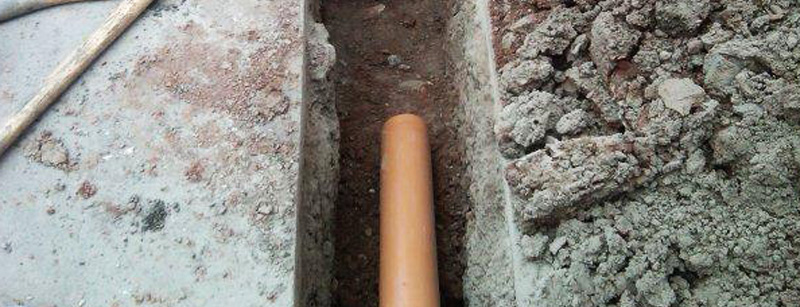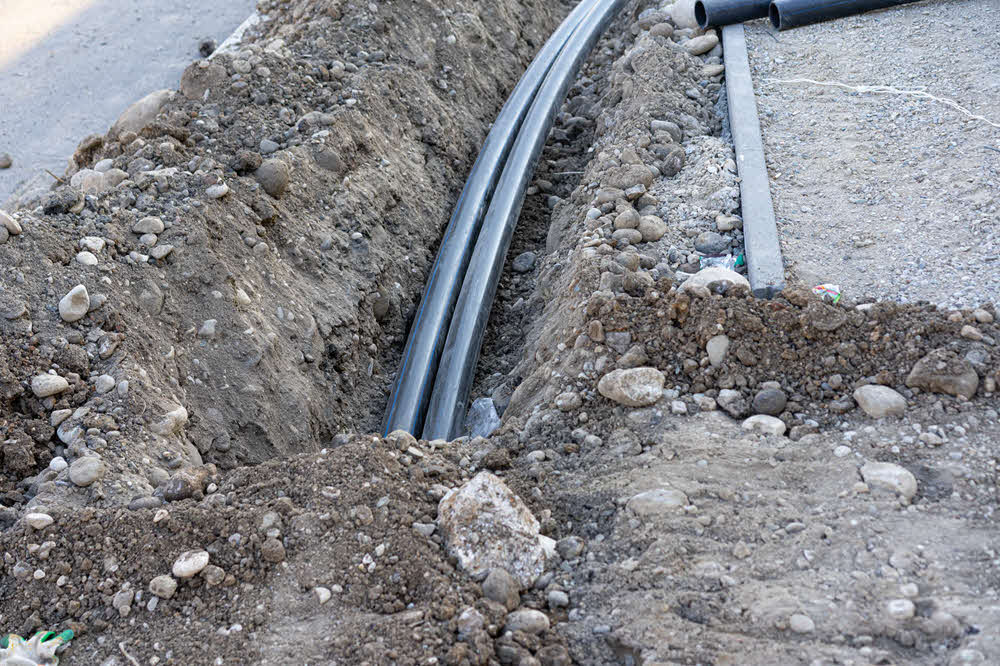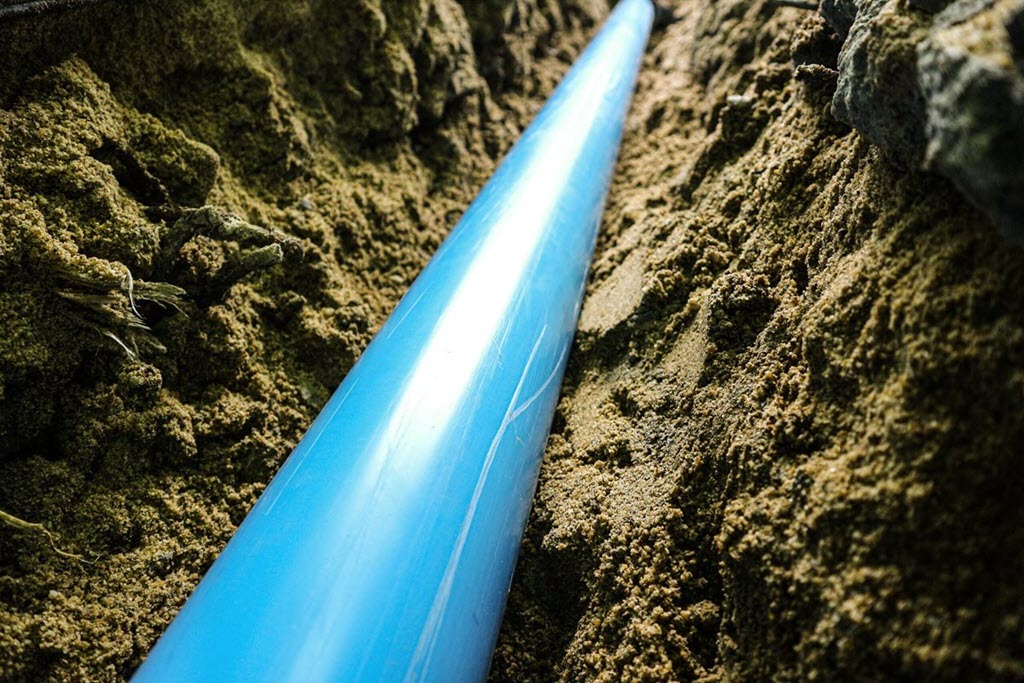Pipe Laying Servicesin Auburn Hills MI
Pipe Laying Services to Support Efficient Infrastructure Development
We Are Locally Owned & Operated For Over 37 Years
Contact Us Today!
We Serve Businesses In And Around The Following Cities:
About Pipe Laying Services
Introduction to Pipe Laying in Auburn Hills
When it comes to infrastructure development in a bustling city like Auburn Hills, one often overlooked aspect is Pipe Laying. However, this task is of utmost importance for both commercial properties and urban planning. From the storm water drain pipe under our feet to the running gas pipe underground vital to business operations, vast networks of pipes hold our city’s lifeblood. Pipe laying is an essential service, holding a critical role in ensuring a city runs smoothly and efficiently. Expert pipe laying firms, such as D&J Contracting, are at the forefront in Auburn Hills, ensuring seamless operations and comfort for commercial properties.
The Art and Science of Pipe Laying
Pipe laying deals with not just the literal laying of pipes, but involves a careful evaluation of ground conditions, the design of pipework, and selecting the proper type of pipes. Tasks like running propane line underground or laying PVC stormwater pipe require both finesse and technical knowledge. The process involves careful planning, strategic execution, and frequent inspection.
Commercial Realities and Practical Applications
For commercial properties, pipe laying offers multiple benefits. A well-laid network of pipes ensures efficient drainage, preventing flooding of properties in periods of heavy rain. Proper installation of underground sewer pipe also m ensures sanitary conditions around business premises. Moreover, laying the running gas pipe underground is a must for seamless and safe energy supply to these properties.
Real estate developers planning a new office block in Auburn Hills can’t overlook a reliable underground storm drain pipe. By preventing flooding, landlords protect their investment and guarantee that their tenants’ operations run undisturbed. A strategically placed drain pipe for rainwater can protect gardens, pavements, and parking lots from runoff damages, while enhancing landscape aesthetics.
Consider a restaurant in Auburn Hills that uses propane as its primary fuel. A well-executed task for running propane line underground will ensure a safe and constant supply of energy, reducing the risks and inefficiencies associated with cylinder-based propane supply. With D&J Contracting being a leading expert in this field, businesses can rely on their services for efficient and safe operations.
Choosing the Right Contractor
Given the vital nature of these pipe laying tasks, choosing the right contractor is integral. D&J Contracting comes with a wealth of pipelaying experience in Auburn Hills. Their services span across the installation of the drain pipe for rainwater, PVC stormwater pipe, and even underground sewer pipe installation. They ensure safety, minimal environmental impacts, and efficient execution.
Working with D&J Contracting for pipe laying needs not only guarantees professional and quality delivery of services, but also brings an understanding of local conditions and regulatory processes in Auburn Hills, enhancing the overall project success and timelines. A city-built reputation and deep understanding of localized requirements make D&J Contracting the ideal partner for all pipelaying needs in Auburn Hills.
Final Reflections
Underneath the thriving city of Auburn Hills is an intricate web of pipes, essential to everyday living and commerce. From stormwater drainage to gas supply, these pipes require professional installation and maintenance. By working with reliable contracting companies like D&J Contracting, commercial property owners can guarantee that their buildings remain functional, safe, and comfortable for their tenants.
In essence, pipe laying is more than just a construction task—it’s peace of mind. It’s the assurance that even in an intense downpour, a building’s operations won’t be hampered. It’s knowing that the energy that powers a business will flow safely and consistently. If you’re considering investing in commercial property in Auburn Hills, or currently operating one, the underground world matters. And when it comes to pipelaying, especially for commercial properties, D&J Contracting embodies expertise, experience, and dedication.
Pipe Laying Services Gallery


Call Us Today to receive your Free Quote for
Pipe Laying in Auburn Hills
Serving: Auburn Hills, Michigan

About Auburn Hills, Michigan
In 1908, automobile pioneer John Dodge bought a farmhouse 3 miles (4.8 km) northeast of Auburn Heights to use as his country retreat. His oldest child, Winifred Dodge, married real estate baron Wesson Seyburn, who built his own country retreat 2.5 miles (4.0 km) north of Auburn Heights. The estate included hunting land, dog kennels, a swimming pool, horse stables, and a 5,000-square-foot (460 m) Colonial Revival house. Pontiac Township purchased the estate in 1976, and adapted the buildings for government use. Today, it is known as the Auburn Hills Civic Center.
The first use of the name “Auburn Hills,” in 1964, was by Oakland Community College. They named their campus (a former Nike missile base) at Featherstone and Squirrel roads for the town and the hilly terrain in the area. Besides Oakland Community College, three other colleges, Oakland University, Baker College, and Western Michigan University Thomas M. Cooley Law School have campuses partially within the city limits.
Auburn Hills began as Pontiac Township, including the village of Auburn, in 1821, at what is today the corner of Auburn and Squirrel roads. Situated on the Clinton River, it was named by Aaron Webster, the first settler, for Auburn, New York. His sawmill and grist mill attracted settlers to Auburn. After the streets were laid out in 1826, Auburn rivaled nearby Pontiac until the 1860s, when it lost its own prosperity. The town was renamed Amy in 1880, and it officially became Auburn Heights in 1919. Pontiac Township bordered the city of Pontiac on two sides. The township attempted to incorporate as Pontiac Heights in 1971, but was denied by state officials. Pontiac Township became a charter township in 1978, to protect itself from further annexation. In 1983, Pontiac Township merged with the village of Auburn Heights to become the City of Auburn Hills. It is not to be confused with the similarly named city of Auburn, Michigan, that exists in Bay County, near Saginaw Bay.
According to the United States Census Bureau, the city has a total area of 16.64 square miles (43.10 km), of which 16.60 square miles (42.99 km) is land and 0.04 square miles (0.10 km) (0.24%) is water.
| Census | Pop. | Note | %± |
|---|---|---|---|
| 1880 | 111 | — | |
| 1990 | 17,076 | — | |
| 2000 | 19,837 | 16.2% | |
| 2010 | 21,412 | 7.9% | |
| 2020 | 24,360 | 13.8% | |
| U.S. Decennial Census | |||
As of the census of 2010, there were 21,412 people, 8,844 households, and 4,923 families living in the city. The population density was 1,289.9 inhabitants per square mile (498.0/km). There were 9,965 housing units at an average density of 600.3 per square mile (231.8/km). The racial makeup of the city was 66.3% White, 18.5% African American, 0.3% Native American, 8.9% Asian, 2.7% from other races, and 3.4% from two or more races. Hispanic or Latino of any race were 7.8% of the population.
There were 8,844 households, of which 27.0% had children under the age of 18 living with them, 38.8% were married couples living together, 12.4% had a female householder with no husband present, 4.5% had a male householder with no wife present, and 44.3% were non-families. 33.5% of all households were made up of individuals, and 7.3% had someone living alone who was 65 years of age or older. The average household size was 2.24 and the average family size was 2.90.
The median age in the city was 31.4 years. 19.4% of residents were under the age of 18; 17.8% were between the ages of 18 and 24; 31.9% were from 25 to 44; 21.6% were from 45 to 64; and 9.4% were 65 years of age or older. The gender makeup of the city was 48.4% female and 51.6% male.
As of the census of 2000, there were 19,837 people, 8,064 households, and 4,604 families living in the city. The population density was 1,194.5 inhabitants per square mile (461.2/km). There were 8,822 housing units at an average density of 531.2 per square mile (205.1/km). The racial makeup of the city was 75.92% White, 13.22% African American, 0.32% Native American, 6.33% Asian, 0.04% Pacific Islander, 1.56% from other races, and 2.61% from two or more races. Hispanic or Latino of any race were 4.50% of the population.
There were 8,064 households, out of which 26.7% had children under the age of 18 living with them; 43.0% were married couples living together; 10.5% had a female householder with no husband present and 42.9% were non-families. 33.1% of all households were made up of individuals, and 6.0% had someone living alone who was 65 years of age or older. The average household size was 2.25 and the average family size was 2.92.
The age distribution is 20.4% under the age of 18, 15.9% from 18 to 24, 38.1% from 25 to 44, 18.2% from 45 to 64, and 7.3% who were 65 years of age or older. The median age was 31 years. For every 100 females, there were 98.3 males. For every 100 females age 18 and over, there were 97.5 males.
The median income for a household in the city was $51,376, and the median income for a family was $60,849. Males had a median income of $45,686 versus $34,015 for females. The per capita income for the city was $25,529. About 3.9% of families and 6.3% of the population were below the poverty line, including 6.4% of those under age 18 and 4.4% of those age 66 or over.
School districts serving sections of Auburn Hills include Avondale School District, Pontiac School District, and Rochester Community Schools.
The Avondale School District operates two elementary schools in the city limits: R. Grant Graham Elementary School and Auburn Elementary School. Portions of Auburn Hills in ASD are zoned to these schools. All ASD residents are zoned to Avondale Middle School in Rochester Hills and Avondale High School in Auburn Hills. Other ASD facilities in Auburn Hills include the district administrative offices and Avondale Montessori. A Pontiac school district school, Will Rogers Elementary School, is located in northeastern Auburn Hills.
Private schools in Auburn Hills include:
- Auburn Hills Christian School
- Oakland Christian School
Private schools near Auburn Hills:
- Notre Dame Preparatory/Marist Academy, Pontiac
- Holy Family Regional School (HFRS) – Consists of a grade PK-3 North Campus in Rochester and a 4-8 South Campus in Rochester Hills. Two churches in Auburn Hills designate HFRS as the parish school: St. John Fisher Chapel and Sacred Heart of the Hills. The first two sponsored the school from the beginning and the other three joined later, with Sacred Heart being the final one.
The main campus of Oakland University sits within Auburn Hills. Oakland Community College, Baker College, and Western Michigan University Thomas M. Cooley Law School are also situated in Auburn Hills.
Call Us Today to receive your Free Quote for
Pipe Laying in Auburn Hills
Related Services in Auburn Hills, Michigan
We Serve Businesses In The Following Zip Codes:
48007, 48015, 48021, 48026, 48035, 48036, 48038, 48042, 48043, 48044, 48045, 48046, 48047, 48048, 48050, 48051, 48066, 48071, 48080, 48081, 48082, 48083, 48084, 48085, 48088, 48089, 48090, 48091, 48092, 48093, 48098, 48099, 48225, 48230, 48236, 48310, 48311, 48312, 48313, 48314, 48315, 48316, 48317, 48318, 48397